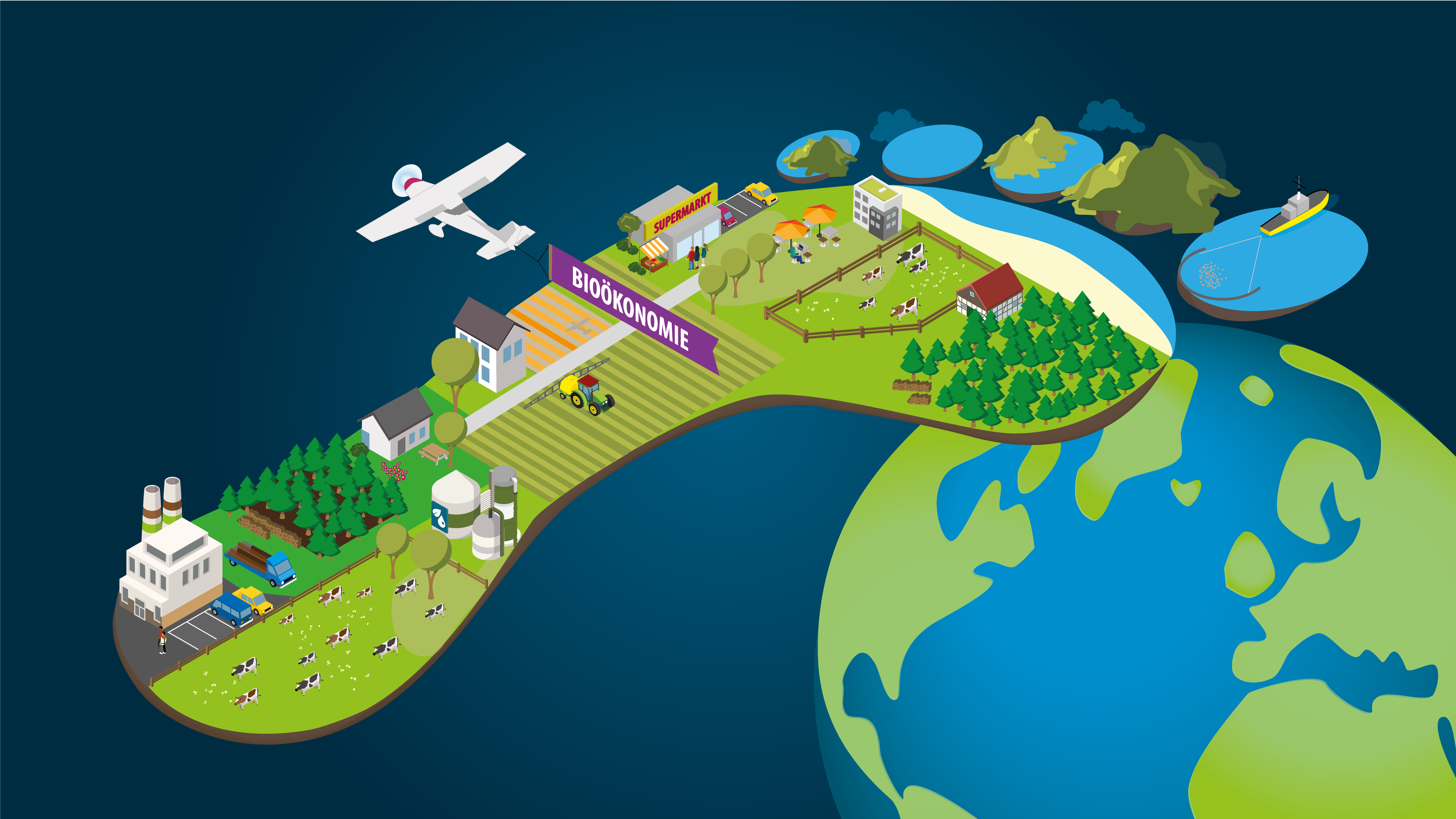The Bioeconomy Monitoring Hub
Start of SYMOBIO 2.0
The hub for bioeconomy monitoring
What is needed for a sustainable bioeconomy transition? The SYMOBIO research team aims to answer this question based on scientific data – and will establish a new website as a hub for monitoring the German bioeconomy.
The bioeconomy is not sustainable per se. It has to be implemented in a balanced way. The research project SYMOBIO 2.0 assesses the main characteristics and trends of the German ‘bio-based economy’ in order to identify current problems, future chances and key needs for a sustainable bioeconomy transition. It not only focuses on impacts and pressures within Germany, but takes a global perspective to identify impacts across supply chains and pressures associated with the level of consumption.
A central platform will be established to collect monitoring data in one place. “Our new website should become the hub for monitoring the German bioeconomy. We present and assess the data and key indicators in a coherent way, and provide links to further details”, explains the coordinator of the project, Prof. Dr. Stefan Bringezu from the Center for Environmental Systems Research (CESR) of the University of Kassel.
Develop key messages:
Fundamental to the research project is the communication of politically relevant messages. “We have to provide more than just an overview of research results. We need to inform people about the performance of the bioeconomy and the requirements for ensuring its sustainability”, says Prof. Bringezu.
The research team uses tools like footprint analysis, remote sensing, stakeholder assessment, case studies, model simulations and patent analysis to provide a wide perspective. SYMOBIO 2.0 specifies and completes the results of the previous project. The results of SYMOBIO 1.0 are published in the pilot report (symobio.de/results). The project is funded by the German Federal Ministry of Education and Research. It runs until December 2024.
SYMOBIO 2.0 is a cooperation of the following institutes:
Center for Environmental Systems Research (CESR) – cesr.de
Kassel Institute for Sustainability, uni-kassel.de
Grassland Science and Renewable Plant Resources (GNR), uni-kassel.de/go/gnr
Helmholtz-Centre for Environmental Research (UFZ) – ufz.de
Deutsches Biomasseforschungszentrum (DBFZ) – dbfz.de
Institute of Economic Structures Research (GWS) – gws-os.com
Öko – Institute for Applied Ecology – oeko.de
German Centre for Integrated Biodiversity Research (iDiv) – idiv.de
GRAS Global Risk Assessment Services – gras-system.org
ifeu – Institute for Energy and Environment – ifeu.de
Fraunhofer-Institute for Systems and Innovation Research (ISI) – isi.fraunhofer.de
Contact:
Public relations for SYMOBIO 2.0
Verena Pommerenke
verena.pommerenke@uni-kassel.de
symobio.de
cesr.de

How sustainable is the German bioeconomy?
© Projektträger Jülich